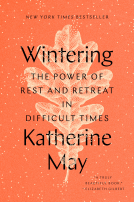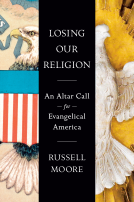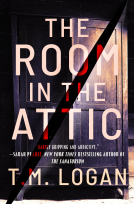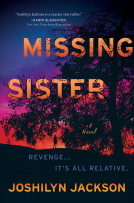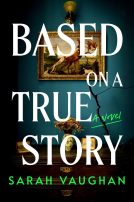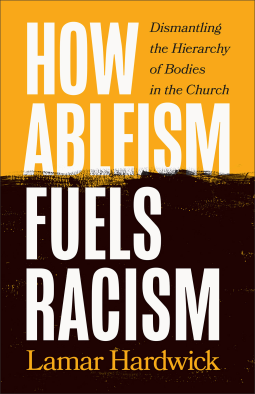
How Ableism Fuels Racism
Dismantling the Hierarchy of Bodies in the Church
by Lamar Hardwick
This title was previously available on NetGalley and is now archived.
Send NetGalley books directly to your Kindle or Kindle app
1
To read on a Kindle or Kindle app, please add kindle@netgalley.com as an approved email address to receive files in your Amazon account. Click here for step-by-step instructions.
2
Also find your Kindle email address within your Amazon account, and enter it here.
Pub Date Feb 20 2024 | Archive Date Feb 29 2024
Baker Academic & Brazos Press | Brazos Press
Talking about this book? Use #HowAbleismFuelsRacism #NetGalley. More hashtag tips!
Description
★ Publishers Weekly starred review
"Marshaling fine-grained historical detail and scrupulous analysis, Hardwick persuades."--Publishers Weekly (starred review)
As a Black autistic pastor and disability scholar, Lamar Hardwick lives at the intersection of disability, race, and religion. Tied to this reality, he heeded the call to write How Ableism Fuels Racism to help Christian communities engage in critical conversations about race by addressing issues of ableism.
Hardwick believes that ableism--the idea that certain bodies are better than others--and the disability discrimination fueled by this perspective are the root causes of racial bias and injustice in American culture and in the church. Here, he uses historical records, biblical interpretation, and disability studies to examine how ableism in America led to the creation of images, idols, and institutions that perpetuate both disability and racial discrimination.
He then goes a step further, calling the church into action to address the deep-seated issues of ableism that started it all and offering practical steps to help readers dismantle ableism and racism both in attitude and practice.
Advance Praise
“A mix of insightful theology, historical research, and personal narrative, this book is necessary reading for anyone who seeks justice in the church. Hardwick highlights the history of ableism and racism in US churches and invites us to a joy-filled reversal of the shame that comes from worshiping these idols.”—Amy Kenny, director, Disability Cultural Center, Georgetown University; author of My Body Is Not a Prayer Request
“Ableism has been a fixture in our society for far too long, determining which bodies are deserving and which ones are not. It has also influenced architectural designs that dictate who can occupy public spaces—upholding views that trample on the dignity of the disabled community. Hardwick draws a connection between race and disability and what we must do to dismantle a hierarchy of bodies to achieve a more just society in our churches, communities, and the world. As he says, ‘disability is not a dirty word,’ and I join him in asserting that the time to resist believing this is now.”—Terence Lester, founder of Love Beyond Walls; author of All God’s Children, I See You, and When We Stand
“Lamar Hardwick provides a sweeping review of the way historical and theological ableism upholds American Christian racism. Grounded in his own embodied experience and pastoral perspective, Hardwick has given us a book that is relatable, persuasive, and perhaps most important, constructive. He not only levels incisive critique but also shows how embracing disability theology helps confront the shameful underside of American Christianity, heralding a fuller vision of God and humanity.”—Erin Raffety, researcher, Princeton Theological Seminary; lecturer, Princeton University
Available Editions
| EDITION | Other Format |
| ISBN | 9781587436123 |
| PRICE | $19.99 (USD) |
| PAGES | 192 |
Available on NetGalley
Average rating from 23 members
Featured Reviews
I will openly acknowledge that Lamar Hardwick, the lead pastor of Atlanta's Tri-Cities Church and a pastor with autism, wasn't on my disability theology radar and I wasn't sure what to expect from his upcoming release "How Ableism Fuels Racism: Dismantling the Hierarchy of Bodies in the Church."
I was blown away.
With "How Ableism Fuels Racism," Hardwick proposes that ableism and the resulting disability discrimination are the root causes of racial bias and injustice in American culture and in the church. Weaving together a tapestry of historical records, biblical interpretation, and disability studies, Hardwick examines how ableism in America led to the creation of images, idols, and institutions that would ultimately fuel both disability and racial discrimination.
After engaging in this discussion, Hardwick calls the church into action to address the deeper issues of ableism and offers practical steps to help readers dismantle ableism and racism in both attitude and practice.
As an ordained minister and seminary graduate who is also a paraplegic and double amputee, I've long immersed myself in the world of disability theology and long believed that the church embraces the hierarchy of bodies about which Hardwick writes. "How Ableism Fuels Racism" served up a myriad of Aha! moments for me and times when long-held beliefs were finally communicated with clarity. Interestingly, Hardwick even clarified for me what had troubled me with another book I recently read around the issue of "deconstruction." I may have actually shouted out "Yes, that's it!"
I've long believed that being accommodated by a church is the ground floor step toward full inclusion. It's far from enough, yet for an institution that fought against the ADA it's often seen as the ultimate gift for those with disabilities. Instead, Hardwick argues that the church should be passionately pursuing those with disabilities and others outside the "typical" hierarchy of bodies."
I'm telling you. Brilliant stuff here. I can't stop thinking about it. Precise in its criticism yet also constructive and forward thinking, "How Ableism Fuels Racism" confronts the shameful and shame-filled underbelly of American Christianity and offers a broader and more inclusive vision of God, faith, and church life.
How much did I love this book? I'm already reading it again.
 Alicia L, Reviewer
Alicia L, Reviewer
I'm fortunate to read this early as an ARC and this book needs to get as much attention as possible. Hardwick combines research with his personal experiences for a great, informative book.
 Michelle K, Reviewer
Michelle K, Reviewer
How Ableism Fuels Racism
Dismantling the Hierarchy of Bodies in the Church
by Lamar Hardwick
Pub Date 20 Feb 2024
Baker Academic & Brazos Press,Brazos Press
Christian| Nonfiction \(Adult\)
I'm reviewing How Ableism Fuels Racism through Baker Academic/Brazos Press and Netgalley:
As an autistic pastor and disability scholar, Lamar Hardwick deals with disability, race, and religion. Because of this, he wrote How Ableism Fuels Racism to help Christian communities talk about race by addressing issues of ableism.
Hardwick thinks ableism--the idea that certain bodies are better than others--and disability discrimination fueled by it are the root causes of racial bias and injustice in American culture. He examines how ableism in America led to images, idols, and institutions that perpetuate both disability and racial discrimination using historical records, biblical interpretation, and disability studies.
In addition, he offers practical steps for readers to dismantle ableism and racism in attitude and practice in order to address the deep-seated issues of ableism that started it all.
I give How Ableism Fuels Racism five out of five stars!
Happy Reading!
 Reviewer 836475
Reviewer 836475
I've read many books on racism in the church and ableism in the church, but this was the first time I've read about how racism and ableism intersect within the church. It was a fascinating perspective, as I'd never thought about things through this lens before.
Hardwick provides much historic and modern context, connecting threads I hadn't connected before and has given me much to think about.
It's in many ways a sad read to think about how the church has failed so many over the years, but I'm encouraged by the calls to action. Highly recommend if you're interested in exploring the intersection of disability and race within American Christianity.
In HOW ABLEISM FUELS RACISM, Pastor Lamar Hardwick cogently presents many arguments that were new to me, and enlightening. He traces the double biases of ableism and racism from the first days of our nation’s settlement to current times, from the Puritans to today’s continuing prejudice against less than perfect bodies, a group which historically included black skinned people. American Christian churches have turned a blind eye to many of these social justice issues, according to Hardwick who himself is black and autistic. Much of the big picture commentary and analysis is embedded in his personal story, but he does not skimp on scholarship and historical references.
This book could be eye-opening for individuals and/or groups willing to look at Christianity without defensiveness, from a new perspective.
With thanks to the publisher and NetGalley for providing a copy of this book in exchange for an honest review.
This is my first time reading Lamar Hardwick's work, and it's both brilliant and necessary. How Ableism Fuels Racism is a thoughtful, well-researched case that considers the intersection of disability theology & racism through unique & connecting threads. It's a book I'll need to reread and revisit, and I look forward to reading more from Hardwick in the future.
Ableism and racism are issues that America and the world as a whole suffer under, and those, along with fatphobia and other things that make human bodies seemingly “less desirable” work together in intersectional ways to oppress people. It’s up to us as individuals, both Christian and otherwise, to reject these biases when we see them and proactively root them out of our institutions and communities. Until these systemic issues are unrooted, people continue to suffer and be persecuted.
While it is enlightening to see examples of how organized religion, specifically American Christianity (a term I personally find too broad to be useful), I had a hard time following the author’s reasoning behind connecting racism and ableism specifically to and caused by the church. These issues exist in the church (though hopefully less so each day), but no more so than in any other organization.
While it is clear that our society equates beauty and body standards with health and morality in an ableist way, that’s not specific to the church itself, either. Rather it’s an indictment of society as a whole that some Christians fall prey to instead of pushing back against, as they should. Using Piper’s comments about disability and ugliness being linked to sin and moral failings should be proof that society as a whole is ableist/sizist/racist. Yes, he happens to be a pastor and is spouting these societal failings from a position of evangelical responsibility, which makes them especially disgusting, but he’d shouldn’t be allowed to represent a whole religious community.
In the end, equating racism with ableism feels like a stretch. They certainly intersect, but they aren’t exactly the same thing. Either it’s a false comparison, or the author didn’t sufficiently explain, define, or prove his hypothesis. The book itself felt disjointed, jumping around from topic to topic. I also couldn’t see how the story of Micah fit into his narrative. It’s possible I am not the target audience for this book, or perhaps my brain just can’t comprehend it.
I definitely feel like these are topics worth learning about, and feel led to look up some of the materials the author referenced.
In "How Ableism Fuels Racism," Lamar Hardwick examines the interconnectedness of ableism and racism, highlighting how both contribute to the marginalization and devaluation of individuals as 'inferior.' He explores the role the Church has played in both.
Hardwick confronts the issue that theology has been used to create ableism, racism, sexism, and capitalism and has been used to benefit a protected class of people. This is a message that I feel bears repeating again and again as it is met with continual resistance, especially by those who are among the protected. "Evangelical Christians have an ever-present need to avoid the consequences of being complicit in helping to establish a system that perpetuates bias against bodies that are considered abnormal." Amen.
Dr. Hardwick takes on the idea of "original sin" and that disability results from original sin or the fall. He presents the concept of decentering faith, which is, in his words, an expansion project in contrast to deconstruction, which he refers to as a demolition project.
I appreciate Dr. Hardwick's struggle as an adult who has come to realize that some of his lifelong struggles are due to autism, not recognized earlier in life.
The underlying question is, "How do we dismantle the image that able-bodiedness equals goodness and that Back bodies are inherently disabled?
Hardwick states it as a fact that disabled people are systematically encouraged to marry only other disabled people without the threat of losing health benefits, saying that marriage penalties shame disabled people into remaining unmarried by threatening them with poverty and death. This is an area that is unfamiliar to me and which I want to research further. There is a chapter where Hardwick discusses a disabled God, and I must admit that this concept flies over my head. Some of his discussion seems redundant even though the book is a relatively short 192 pages.
Thank you, NetGalley and Brazos Press, for sharing an ebook version ARC in exchange for an honest review.
#HowAbleismFuelsRacism #NetGalley
I think this book made a lot of great points and I have a lot of takeaways saved, however, I do feel like a lot of this was repetitive. Many chapters only briefly discussed what the title / intro indicated they were about.
 Reviewer 1310807
Reviewer 1310807
Many thanks to Net Galley for the advance reading copy of this fascinating eBook.
I would recommend this book to primarily two groups of people: progressive Christians seeking to be more inclusive and more aware of the way their religion has been warped and misused to fuel bigotry, and to people who may not be Christian (or may be ex-Christian) but interested in learning about the intersections of disability, race, and the usage of Christianity as an oppressive tool. I think the strongest element is the author’s ability to put things in accessible language without losing impact. I think the weakest element is that it’s very anchored in a Christian perspective, which makes sense considering the author is a pastor. I feel like more consideration and acknowledgement of how the bigotry fueled by Christian bigotry affects people beyond the congregation, including people who are explicitly not Christian, would do the book some good. I wouldn’t mind reading another book by this author, depending on the topic at hand.
This book is well-crafted with a lot of effort, as a labor of love and devotion from the author to not only his religion but to bettering Christian spaces and doing the work to unpack the bigotry within the church. You can see that the author has put in the work and dedication to the topic, diligently sourcing and discussing seminal pieces on Black theology, and disability theology, its intersections, and the history of race and disability in American Christianity. While the author does occasionally do more than necessary to reiterate a point, it’s not overwritten, and a fairly quickly paced read. The book is very clear and straightforward, the writing easy to understand, and as a result, I think it makes the subject matter very accessible. On the technical side, it’s clear and consistent, with no glaring errors or jarring construction to take one out of the text.
I really appreciated the disclaimer at the beginning about disability language; it’s a complicated topic within the community, and as with all language, it is evolving, so it’s hard to know what terminology will survive and what won’t. Preferred language varies a lot within the community, between different disability communities having differing dominant opinions on person- vs identity-first language and individuals within those communities having a variety of opinions on it, too. I think the disclaimer does a lot of good both in explaining that and in making the author’s choices in terminology, and the reasons behind them, clear.
 Elley S, Librarian
Elley S, Librarian
Thank you, NetGalley, for providing the e-ARC for this book.
I thought it had a lot of insight especially as a POC pastor who has autism. It was a perspective I didn't think to have or read from. It was definitely an interesting read.
The book found its groove, becoming more personal blended with the varied topics related to the subject. The writing is critical and solution based. It is also grounded. The book sets my curiosity to learn more about the the subject.
 Jodi N, Librarian
Jodi N, Librarian
I did not read this book in its entirety. There is a lot of history in this book, which is just not my cup of tea. I work with autistic kids, so I was happy to read it but it was not what I was expecting.
 Media/Journalist 526791
Media/Journalist 526791
A thought-provoking intersectional look at the link between ableism and racism in spirituality and why religious spaces need to be aware of this.
As someone who works in the disability field and has children with Autism, I was very excited to dive into "How Ableism Fuels Racism" by Lamar Hardwick. This book delves into a field I focus on, and I had high hopes for it. However, my experience with the book was mixed.
From the start, I found the book to be more laborious than engaging. While some books are easy to read, this one felt like work. The narrative was repetitive, and although there were some "ah-ha" moments, I struggled to buy into many of Hardwick’s suggested connections and leaps.
Hardwick's perspective is undoubtedly unique, and I appreciated his insights into the intersectionality between disability, racism, and religion. However, I found it challenging to see the depth of connection he suggested. Specifically, I had difficulty following his reasoning behind connecting racism and ableism specifically to and caused by the church. While our society does equate beauty and body standards with health and morality in an ableist way, this is not something I see as specific to the church alone.
The book offered a good amount of correlation, but correlation does not equate to causality. If there is truly a strong connection between ableism, racism, and the church, I felt that Hardwick did not sufficiently explain, define, or prove his hypothesis. While there are undoubtedly elements of the Church or theology that perpetuate bias, I don’t believe they are more complicit than many other institutions in our society.
Despite my struggles with the book, I appreciated the different perspective and the disclaimer at the beginning about disability language. While this book didn't speak to me personally, others might find value in its unique viewpoint and thorough exploration of these critical issues.
 Ivy A, Reviewer
Ivy A, Reviewer
While this book focuses on ableism and racism, I learned a significant amount about how the church has perpetuated ableism over the years and how the founding fathers of our country used religion and ableism as the initial forms of a caste system. Black bodies were seen as inferior and therefore were able in their minds able to be enslaved. This book is a great read for those in the church who want to learn more about equality and how we as a community and church can do better about falling into the trap that we may be "better than." Lamar Hardwick quoted many different authors and theologians, including one who wrote a book about how Jesus was disabled as a result of the crucifixion. This book is great food for thought and I recommend for those who want to learn more about how they and the church view those seen as different.
"Racial slavery in the West began by using disability to make chattel slavery a matter of charity rather than a matter of equality. Defining Africans as mentally inferior and effectively disabled allowed for proslavery advocates to appeal to the Christian ethos of benevolence."
"The challenge is that beauty is an abstract concept. Our inability to define beauty without using a deficit model stands in contrast to our fundamental beliefs about how God created us. Our origin begins outside of us. An infinitely holy and wise God who creates with intention and intimacy placed us in the world. Acknowledging God's creative genius challenges us to believe that God does not create anything that is not beautiful in its own way."
 Lindsay O, Reviewer
Lindsay O, Reviewer
This is a powerful book and an important challenge to the status quo in modern U.S. American Christianity (and beyond, I suspect, but I will speak from my own context). I appreciated Hardwick’s illumination of the direct link between ableism and racism, which he explained in a way I had never heard before. I also found his interpretation and application of scripture from a disability theology lens to be insightful. He uses a framework that shows “how ableism in America led to the creation of images, idols, and institutions that perpetuate both disability and racial discrimination.”
I’m fairly new to learning about disability theology and found this book to be a helpful, accessible read that challenged some of the core assumptions many of us inherited from our white western evangelical upbringing. Hardwick combines his own life experience as a Black disabled pastor with his thought-provoking engagement with scripture to call Christians to a more just and liberating theology. Disability theology is not simply a means of including disabled folks in the Christian community but is an essential lens through which we will see Jesus, others, and ourselves in a completely new light that is transformative.
 Reviewer 815381
Reviewer 815381
This is a great read for a church to read as a group and then have discussions connected to the book. The author is brilliant and the topic goes into important details.
Hardwick's writing is intelligent, paradigm shifting, and incredibly important work.
Hardwick's writing theorizes that ableism and the resulting disability discrimination are the root causes of racial bias and injustice in American culture and in the church. He writes extensively on the history, biblical interpretations, and many scientific studies on disability. However, his writing is incredibly dense and hard to read. If you are looking for an approachable book on the topic, this may not be for you. However, if you are looking to add a well researched book to your shelf, this may be the one for you.
Readers who liked this book also liked:
Kate Quinn
General Fiction (Adult), Sci Fi & Fantasy, Women's Fiction
